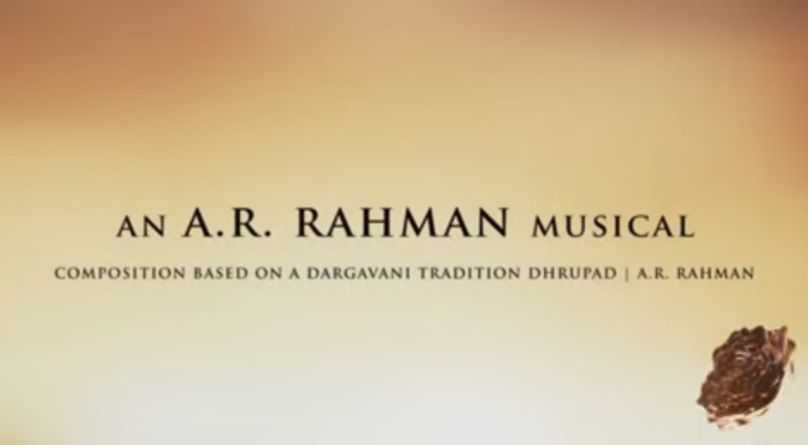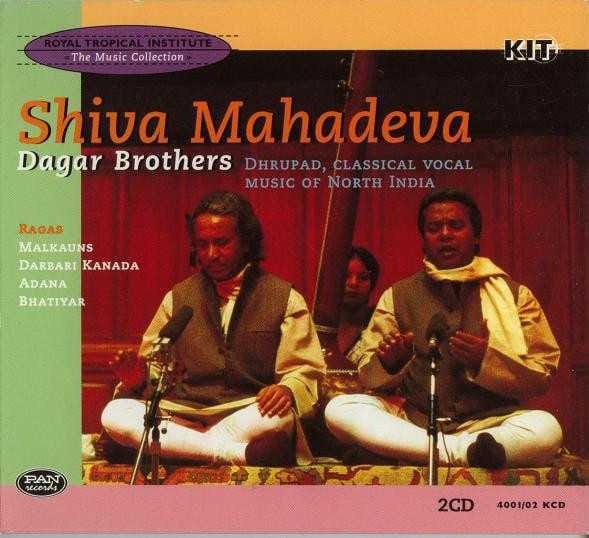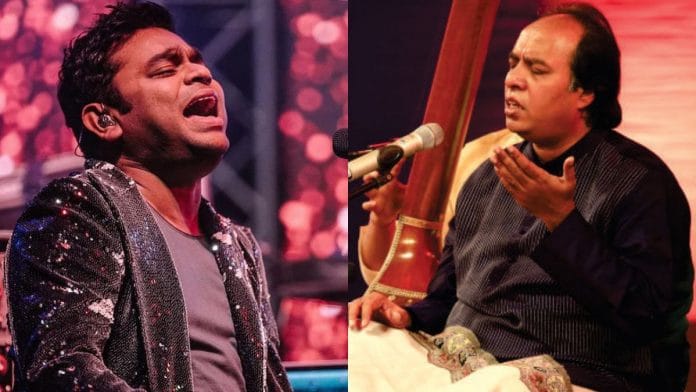After listening to ‘Veera Raja Veera’, the brand new song from the Tamil film Ponniyin Selvan 2, Dhrupad maestro Ustad Wasifuddin Dagar alleged that music composer and singer-songwriter AR Rahman had ‘lifted’ from his family. He claims the melody is very similar to a traditional Dhrupad that his father and uncle had composed, but not copyrighted.
“He took the entire composition, and used it as he pleased. Just used it (Pura composition hi le liya? Kisi bhi tarah istemaal, bas istemaal),” 54-year-old Dagar alleged. His students were outraged, morality was debated, an email was sent, and many days later, the Ustad and the Oscar-winning composer finally spoke over the phone for around 30 seconds — after allegedly making Dagar wait for three minutes. Nothing came off it.
Lawyers from Mani Ratnam’s company Madras Talkies—which produced PS 1 and PS 2—have rejected the claim that ‘Veera Raja Veera’ is a copy of ‘Shiva Stuti’. “It has been composed by Narayana Panditacharyain in the 13th century,” was their written response to the maestro’s email. The response also accused Dagar of seeking monetary gain and warned of legal action for communicating any further.
Several disciples of Wasifuddin Dagar pointed out that the song wasn’t credited to the Dagarvani tradition initially; it was added about 10 days later in the description, claims one. And even in the video, the song was incorrectly credited as ‘Dargavani’, a possible typo which still exists. There is no such tradition by that name.
However, Mani Ratnam’s legal team’s response that the stuti is by a 13th-century poet is, in itself, contradictory to the fact that they have credited it to Dagarvani.
“Why is it said that the song is based on Dagarvani if they took it from some unknown 13th-century text?” asks S Anand, a disciple of Dagar and Publisher, Navayana.
The thorny issue may have the underpinnings of morality, but it is the legality of what was allegedly stolen that Dagar is now reluctantly exploring. He claims that his father Ustad Faiyazuddin Dagar and uncle Ustad Zahiruddin Dagar — popularly known as the Junior Dagar Brothers — had composed the song on the raga Adana. The song later came to be called ‘Shiva Stuti’.
‘Veera Raja Veera’ has reignited an age-old debate on ownership and copyright of folk and classical songs as well as traditional and modern compositions that evoke popular ragas. Traditionally, it is music passed down, fine-tuned and adapted over hundreds of years—and like yoga, open to all.
But labels, movie composers, musicians and directors scour this repository looking for inspiration for their compositions. And the wheels of this well-oiled industry ensure that the slickly produced songs are marketed to an audience all over the world, earning everyone involved crores. Now, classical Indian artists are debating whether they should copyright their compositions. It goes against the grain of tradition, but it is the nature of the game.
“The true spirit of guru-shishya parampara is that once something is taught to you, it becomes yours, unless it is their original composition, in which case one must seek the composer’s permission, which is not the case here,” said Arman Ali Dehlvi, a disciple of Dagar who has been credited in the Hindi version of Rahman’s war-cry song Veera Raja Veera. Shivam Bhardwaj, another disciple of Dagar who has been credited in the supporting vocals category, had allegedly informed the A R Rahman team about the conversations that were happening before an email was sent out from Dagar’s side.
Also read: Pandit Jasraj—modern-era Tansen who even hypnotised deer with his music
A battle is on
Incidentally, when the video was released, it gave credit to ‘Dargavani tradition Dhrupad’. The Dagar family name had been misspelled.

“Rahman excels in using ragas innovatively. So this brazen effort to copy-paste an entire bandish and pass it off as his doing is shocking. He’s just an arranger in this case. His version clocks millions of views and rupees. The bandish composed by the Junior Dagar Brothers becomes a footnote,” said Anand.
The Dagar gharana is the most prominent Dhrupad family in Hindustani classical music, spanning 20 generations. It can trace its history to the 15th century. Initially, Wasifuddin Dagar was contemplating making a video about the similarities between the two songs and posting it on Facebook. But then he will be taking on heavyweights in the South Indian film industry.
“My family members have asked me why I want to get into this fight. Cinema people hold a lot of power,” he said.
Madras Talkies’ legal response leaves no room for interpretation.
“Dagar has no locus standi to claim copyright over the composition,” it said in the letter. It notes that ‘Shiva Stuti’ had been performed several times, but by choosing to target Rahman alone, it leads to the “inevitable conclusion” that the letter is only a “fishing expedition for monetary gain and publicity”.
Also read: Nepotism is key in musical gharanas too. But anger only for Sushant Singh Rajput
A divided team
Within the cloisters of the Indian classical music industry, composers are divided.
“When Rahman sir asked for suggestions for a war-cry-like song, I recommended ‘Raag Adana’ and sang the composition in a Tarana form, which he liked,” said Dehlvi. He added that Rahman “immediately agreed” to acknowledge the Dagarvani tradition of Dhrupad.
He argues that the song is “in public domain” since it is not known who the original composer is. “I informed Ustad Sahab (Wasifuddin Dagar) about it after coming back from recording it in Chennai in 2019. Perhaps he may have forgotten,” Dehlvi added.
However, several artists, including Dagar, have spoken about the lack of acknowledgement and credit.
Carsten Wicke, a renowned veena artist of German origin, found the oldest recording of the composition dating back to 1978. It’s a recording of a live concert by the Junior Dagar Brothers at the Royal Tropical Institute in The Netherlands. Other members of the Dagar gharana later performed it as well.

“And then the Gundecha Brothers also made it popular. It has become so popular that it has full notations and lyrics on the Internet,” Wicke said. He agrees that there is a traditional way to use a composition. “Take the permission of the Guru and not use it for commercial gains.”
But given the evolving history of a bandish, it is difficult to credit one person or family for it, others argued. Senior Dhrupad singer Umakant Gundecha sees it as a matter of pride that the bandish has been used by Rahman.
Legally, Dagar may not have much of a case. Copyright law expert and professor at National Law School of India University, Bengaluru, Arul George Scaria said Rahman didn’t directly violate the copyright law because he is drawing common elements of Dhrupad music. “But it would have been morally more appropriate to say the work has been inspired by these singers,” he said.
Also read: Violin maestro M.S. Gopalakrishnan who mastered both Carnatic and Hindustani Classical music
Cry for acknowledgement
Pramathesh Ambasta, a senior development professional and disciple of the Junior Dagar Brothers, said the Dagar gharana has steered clear of working with film people and preserved the tradition of Dhrupad.
“If it wasn’t for the Dagar family, there would have been no Dhrupad tradition.” he said.
Even stalwart music directors like the late Naushad Ali have taken classical compositions and converted them into famous Hindi songs such as ‘Man Tarpat Hari Darshan Ko Aaj’ and ‘Madhuban Mein Radhika Nache Re’. In 2014, Rajasthani folk singer Mame Khan came forward saying that folk artistes from Rajasthan don’t get due credit after their songs are used in Bollywood films.
From ‘Pallo Latke’ to ‘Anjan Ki Seeti’, several folk songs were allegedly used by music directors without any credit. The famous ‘Munni Badnaam Hui’ song from 2010 Hindi film Dabangg is said to be a rendition of 1970s song by a Madhya Pradesh folk singer Razia Begum. Kesaria Balam and Nimbooda also come from the traditional Manganiyar and Langa singers of Rajasthan. Kannada film Kantara’s song ‘Varaha Roopam’ is allegedly a plagiarism of Kerala-based Thaikkudam Bridge’s song Navarasam.
Most classical musicians, like Ustad Wasifuddin Dagar, want acknowledgement.






